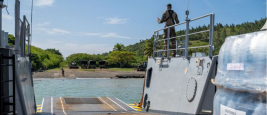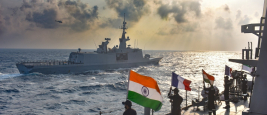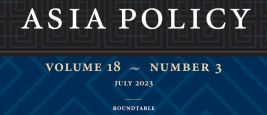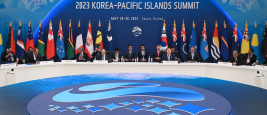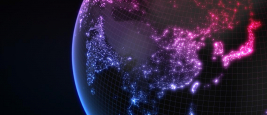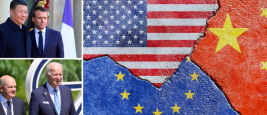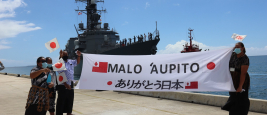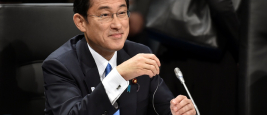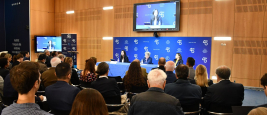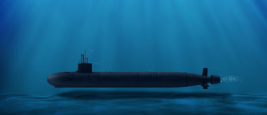
Céline PAJON
Research Fellow, Head of Japan Research, Coordinator of the Program on Pacific Islands,
Center for Asian Studies, Ifri
Research Interests:
- Japanese foreign and defense policy
- International relations and geopolitics of the Indo-Pacific
- French and European approaches to the Indo-Pacific and Pacific Islands
Celine Pajon is Head of Japan Research at the Center for Asian Studies of the French Institute of International Relations (IFRI), Paris, where she has been a Research Fellow since 2008. She also coordinates the research program on Pacific Islands, set up in March 2022. Céline is a Senior Researcher with the Japan Chair at Vrije Universiteit Brussels (VUB) and an International Research Fellow with the Canon Institute for Global Studies (CIGS) in Tokyo. Her area of expertise is Japan’s foreign and defense policy, as well as geostrategic dynamics of the Indo-Pacific area, including the position of France and Europe in the region, and their policies vis à vis the Pacific Islands. A graduate from the Institute of International and Development Studies in Geneva and Sciences Po Lyon, Céline also studied in Waseda University (Tokyo) and Osaka University.
She tweets @CelinePajon
The South Pacific Defence Ministers Meeting (SPDMM) is taking place in Nouméa (New Caledonia) from December 4th to 6th of this year.
As US-China rivalry reaches its peak and the likelihood of a high-intensity conflict in the region seems greater than ever, this report advocates for a pragmatic recalibration of France’s strategic posture in the Indo-Pacific. This adjustment should be grounded in a realistic reframing of...
France was the first European country to announce an Indo-Pacific strategy, launching it in 2018.
Korea (ROK) held the first Korea–Pacific Islands Summit at head-of-state level on May 29/30 and entered an already crowded Pacific region.
Japan and the European Union are increasingly aligned on international economic policies, the product of a similar outlook toward China – concerned without being overtly hostile – and worried about over-reach by the United States.
The G7 summit in Hiroshima showcased a new international order in the making: in a world where security is indivisible, the priority should be to uphold a collectively shaped rules-based order and find a modus vivendi with China. The G7 can work toward this by taking into account the...
As French President Emmanuel Macron (accompanied by Ursula von der Leyen) is on a state visit to China, some twenty Ifri researchers decipher the stakes of the U.S./China/Europe strategic triangle.
Japan has recently stepped up its engagement with the Pacific Island Countries (PICs), building on its historical ties and strategic interests in the region.
More frequent climate disasters, rising sea levels, the economic fallout of Covid-19 lockdowns, border closures, supply chain constraints, and the global impact of the war in Ukraine have aggravated the challenge of maintaining sustainable and resilient food systems for Pacific Island...
In the current tumultuous geopolitical setting, Tokyo may have a very specific, stabilizing role to play.
President offers 'alternative' for states squeezed between U.S. and China
While the impact of Kishida’s tour is ‘marginal, it can still send ‘a message of solidarity’ that it intends to take the continent’s concerns seriously. Getting the African countries to take active measures against Russia will be difficult if they are not offered strong incentives in exchange,...
More realistic posture would strengthen Paris' role in Indo-Pacific region
One of Prime Minister Fumio Kishida’s top goals for next month’s Group of Seven summit in Hiroshima is to create a united front on issues like China and Ukraine. But finding a unified approach to dealing with Beijing’s assertiveness might have just become harder.<...>
Japan has been investing in the continent for longer than China and applies international standards to its infrastructure financing, analysts said. Its pockets may not be as deep, but its support of good governance and democratic principles makes it a tempting development partner for...
Annual conference of Ifri's Center for Asian Studies. The war in Ukraine has marked the return of high-intensity conflict in Europe and represents a profound, structural shift in the region’s strategic environment. It also takes place against a backdrop of a decades-long...
One year on, the announcement of the Australia-U.K.-U.S alliance has not been accompanied by any major changes to France’s Indo-Pacific defense strategy.
Japan, which began developmental programmes in the 1990s, has been eclipsed in recent years by China, now Africa’s leading trade partner.Pledge to invest US$30 billion on the continent includes a focus on training Africans to run their economy.
Partners in the Blue Pacific (PBP) is made up of US, UK, Japan, Australia, New Zealand, with the latter two expected to spearhead cooperation efforts. Some experts say France is already interested despite anger over Aukus security pact; the new PBP will become ‘multilateral rather than...




